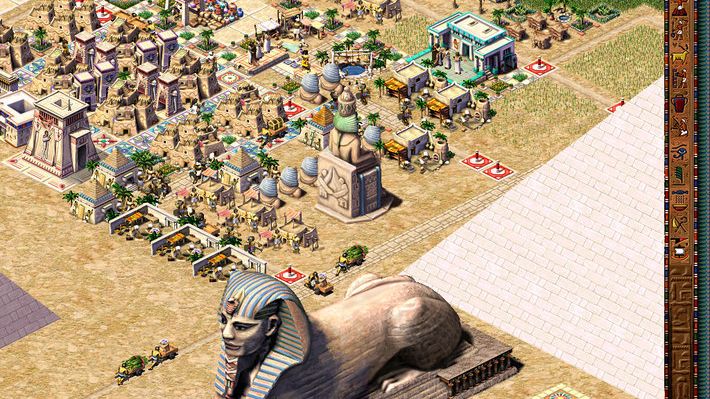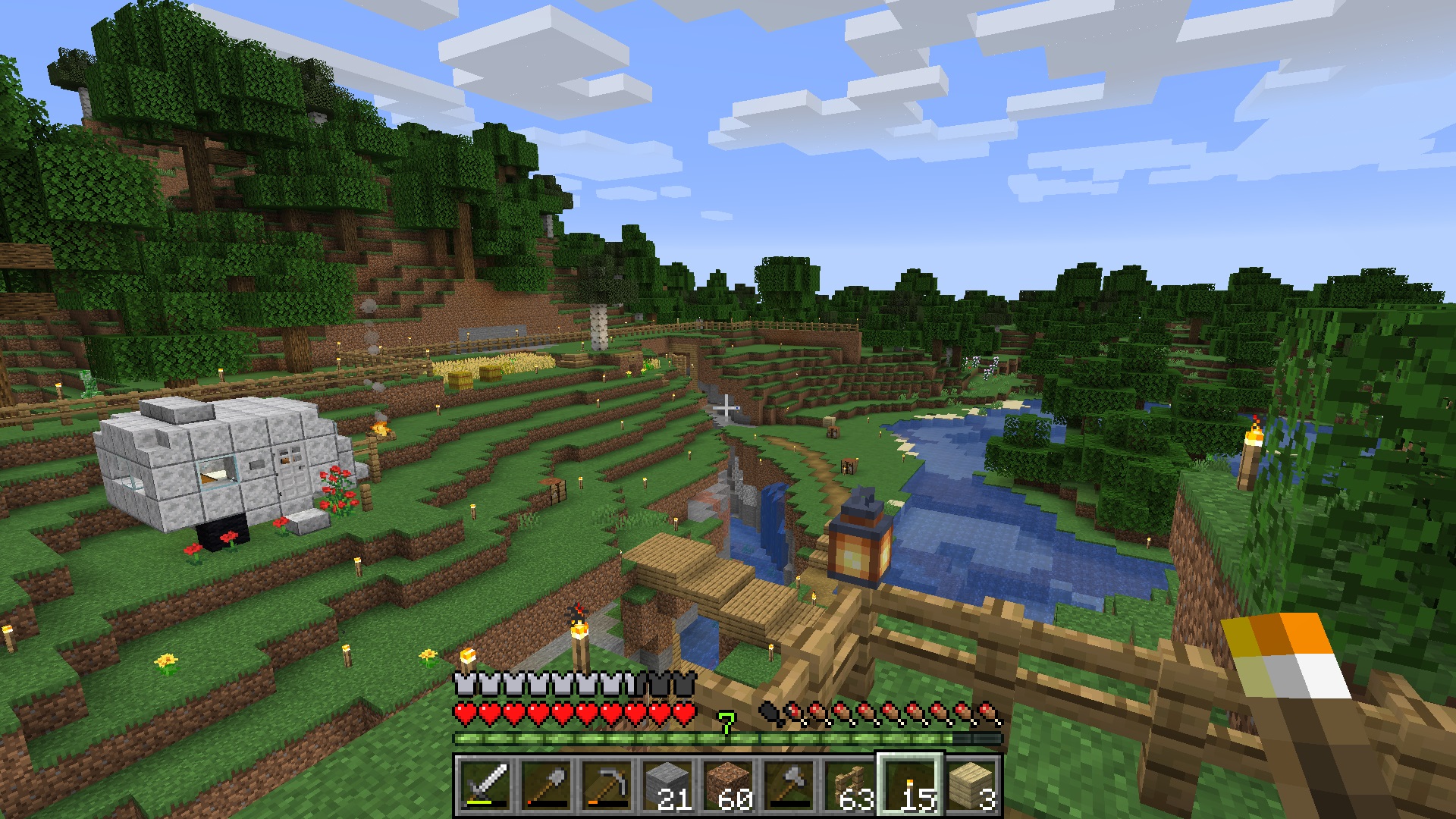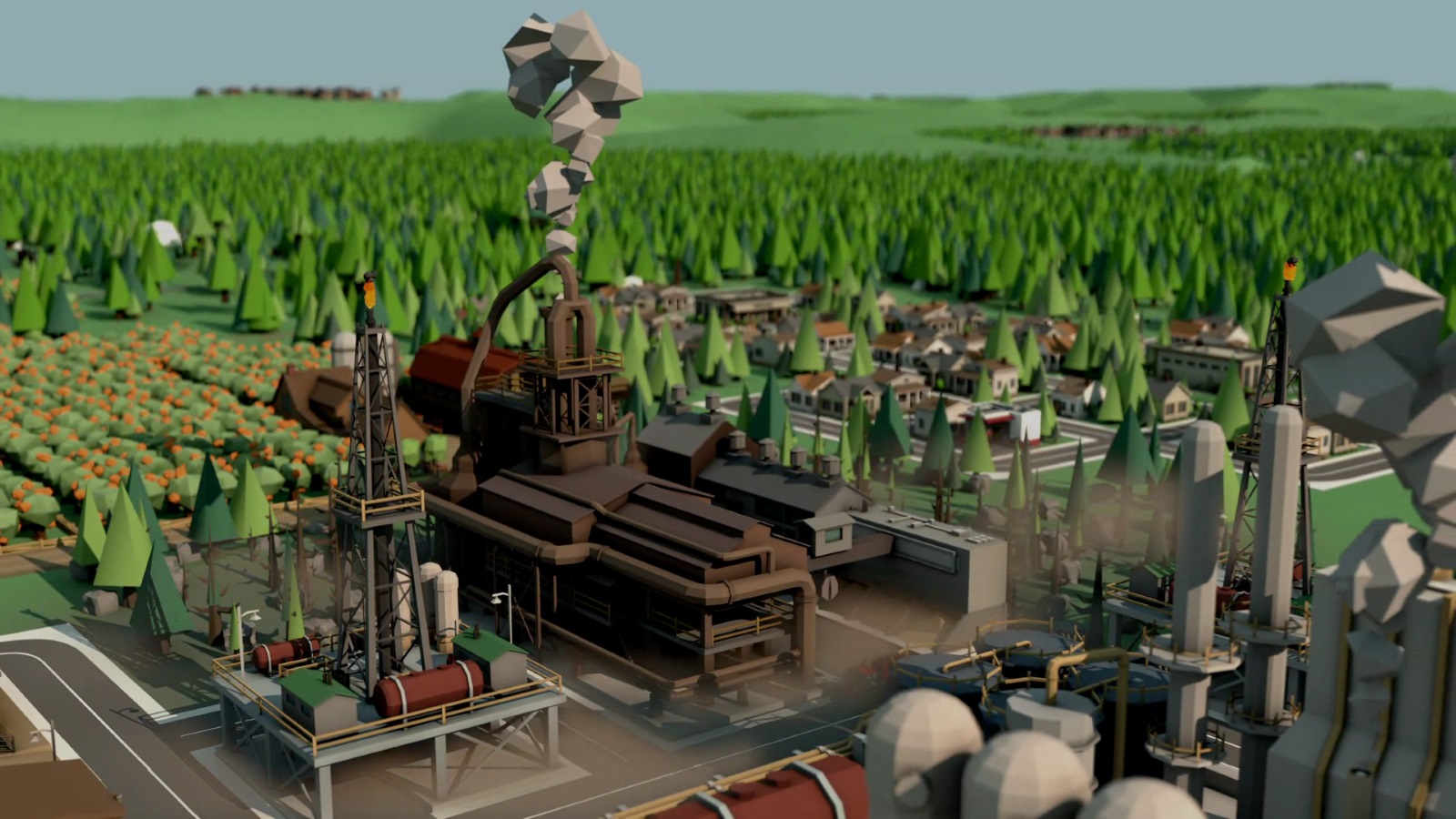Game DNA: growing order from chaos
Bottled ants
The summer of 1991 was all about ants. I was seven years old, and I spent the entire school holiday camped in the garden, gently catching winged queens and housing them in shitty coke bottle formicariums. There I would watch them lay eggs and create workers, who would dig tunnels, search about the place, and scurry in lines with grains of food in their jaws. I was captivated by my bottled nests, by their self-organising complexity, and although I had no idea at the time, I think that those ants might have been my first defining games experience.
Later that year, I was playing Mega Lo Mania on someone else’s Amiga. It was one of the early, weird RTS games that showed up before Dune 2 set the standard for the genre, and I was baffled by it. There were little blokes I could order around from the sky, and I could make them design weapons, mine resources, or fight other blokes. I didn’t get it at first - I kept sending my blokes against the other blokes, and having them all die. But then I realised I could use resources to make more blokes. It was, I realised, just like the ants! Alas, it was someone else’s Amiga, so I had to go home soon after figuring this out, and forgot all about it.
Over the next four years I played lots more videogames, but since I was a solid Mega Drive Lad, I was firmly of the opinion that games were all about jumping on stuff to batter it, and trying not to fall into holes. That was entertainment enough, but it didn’t hold me in thrall - not like the ants had done.
But then in 1995, the year I started secondary school, my family got our first PC, a Packard Bell desktop that spent more time dead than alive. But it came with CivNet (the largely forgotten multiplayer-capable version of Civilization that was almost instantly overshadowed by the release of Civ 2), and it absolutely crunched me up. Starting with just a single settler wagon, like an ant queen of pixelated wood and canvas, I could create cities, and a whole empire!
It was happening at school too. I played game after game of Dune 2 in the computer room, where I had an experience so similar to that of former RPS lord Alec Meer that I half-wonder if we were in the same room. My favourite thing about Dune 2 was how you had to put concrete down before you could build anything. Watching my base spread across the sand on a tide of orderly grey, as the harvesters beetled back and forth, gave me the most satisfying sense of building structure and complexity in emptiness.

I went to a grammar school where, as impressionable kids, we were gradually indoctrinated to be ultra-competitive, grabby little bastards. It felt like at least once a week, we’d have an assembly where someone read the parable of the talents, a bible story about a rich man giving his slaves money as he goes away on a trip, and telling them to use it wisely. On his return, the rich man rewards those who have invested and made a return, and utterly monsters the poor sod who buried the cash for safe keeping. The moral was clear: whatever you’ve got, use it to get more.
The games I was playing at the time mirrored the sermons. Red Alert, where there was one resource to collect. Total Annihilation, Warcraft 2 and Starcraft, where there were two resources. And Age of Empires, where there were four. You mined the coins, spent them on war gits, and took more land to mine coins on.
It was at the very start of the 2000s, however, that my eyes were fully opened. I was staying with my cousin, and for some reason we’d been to a house party full of kids much posher than me, where I’d gotten proper 16-year-old shitfaced as a result of being socially out of my depth. The next morning, coming into the kitchen feeling like I had a soul full of dog food, I found my cousin playing something extraordinary on her laptop.
There was a deep green river, swarming with reed boats, and a mud plain brimming with ranks and ranks of farms. Little people were tilling them to the sounds of croaking frogs and buzzing insects, and carts were taking the output to a huge cluster of mud-brick buildings. This was Pharaoh, and I knew from about five minutes of watching that it was the game I had been waiting for all my short life.

There weren’t just one, two or three resources - there were dozens, and some of them could be combined to produce new, more valuable ones. And it wasn’t all to drive conflict, either. While combat was there as a sort of annoying afterthought, the main thrust of the game was about building complexity for the sake of it. After discovering Pharoah, I played a bit of Caesar III and Zeus (its Roman and Greek equivalents), before settling on the excellent (but now largely forgotten) Emperor: Rise Of The Middle Kingdom when I went to university in 2002.
From the Civ series, to Age Of Empires, to those Sierra city-builders, I don’t think it’s coincidence that so many of the games that scratched my ant-watching itch were themed around early human cultures. After all, that’s where the itch comes from. It’s an urge hardwired into our cortices since at least the start of the beautiful nightmare we call agriculture.
Indeed, civilisation isn’t that complex, when you look at it as an animal behaviour. A handful of dirty, feeble creatures, scraping the most meagre surplus from the chaos of the wild, and investing it. Using it to make a slightly larger handful of slightly less dirty, slightly less feeble creatures. Creatures capable of scraping a slightly larger surplus, in order to start the cycle over again. A temporary ‘fuck you’ to entropy which, in just the briefest flicker of deep time, filled a planet with seven billion people.
And in nature, instincts that successful tend to stick. That urge to harvest, sow and harvest slightly more, in an endless loop that gives us control and tames the chaos around us into biomechanical order, is baked into us; soldered hopelessly to our pleasure centres in a way that’s astonishingly easy to fool. You could make a game in a couple of hours which could satisfy it enough to be compelling for a few minutes. Indeed, this is the proverbial face which has launched a thousand Steam Early Access ships. But get the formula right, and you can bolt players to chairs for thousands of hours, helplessly beholden to hominid habit.

For me, the game that got it almost perfectly right, that came nearest to genuinely consuming me, was Dwarf Fortress. I discovered it in 2006, as I made a complete pig’s ear of starting a proper life after graduation, and it really didn’t help matters. You might already know a little bit about my relationship with Dwarf Fortress, but it’s fair to say that for a couple of years, my focus on it was… a genuine impediment to normal life.
Of course, Dwarf Fortress was (and is) such a work of genius that its system-building, resource-gathering aspects were merely a byproduct of its main function as a story generator. And yet still, arguably, they wiped the floor with anything that existed at the time, in terms of scratching the ant-itch. If the game's creator Tarn Adams ever focuses his whole attention on making a management simulation, I’m done for.
Interestingly, however, the next big milestone in my relationship with the order-from-chaos impulse, was the first to eschew the top-down “god” viewpoint of every game mentioned so far. It was the winter of 2010, and the game was Minecraft. Here was a world in which you were dumped naked, and could build anything you wanted, but it all began with punching a tree.
The sheer freedom to create was one thing (this was a far cry from the handful of structures Age of Empires permitted you to build, after all) but more astonishing was the fact you were doing it all yourself, in the first-person, rather than commanding little dots. Finally, I was the ant.

Subsequent mods such as Industrialcraft (and my personal favourite, Skyblock, where you started on a tiny floating island and had to use the meagre selection of starting resources to slowly, excruciatingly, expand it), refined the elixir further, and have the benefit, in hindsight, of not being designed by a complete dickhead.
In the decade since, I’ve found myself overwhelmed by games (in many cases inspired directly by both Minecraft and Dwarf Fortress) that hit the sweet spot. In particular, a group of wildly successful early access games that kicked off in the first half of the 2010s, and are still growing today. Rimworld, Don’t Starve, Prison Architect and of course the behemoth Factorio.
Oh goodness, Factorio. If the RTS games of the early 90s managed to tap into the impulse to incrementally increase order, then Factorio weaponised it. It’s a dull cliché to compare games with crack, especially if you’ve not smoked crack (I have not smoked crack), but Factorio certainly offered a brutal, unrelenting high.
And here we are today. In the past few months alone I’ve reviewed games that absolutely glow with the DNA of taming the wild, creating order. Anno 1800, with its vastly upscaled take on Pharaoh-style production chains, Surviving Mars’ Green Planet expansion, which focuses on the terraforming of an entire planet, starting with the landing of a single rocket, and Oxygen Not Included, a tremendously complex colony simulator that demands knowledge of computer science, engineering and physics. All were excellent, in the exact same way as seven-year-old me’s ant bottles.

But it’s not all beautiful. I also reviewed Rise of Industry, which deeply worried me with its cutesy, completely uncritical take on the fantasy economics of perpetual expansion. After that, I spent a good while wondering whether, in fact, this particular hominid impulse is a dreadful thing for games to nurture in a global civilisation under threat of consuming itself.
But in the process of writing this piece, I’ve taken a different view. While I still think it’s vital to look at how the urge to expand is presented to players (thus denying Rise Of Industry its free pass) there’s maybe something encouraging in just how easy it is to trick the human mind into feeling satisfied by phantom, digital expansion that has little effect on the physical world beyond the minor consumption of electricity (minor compared with, you know, actually building cities for real, that is).
Maybe games could offer a sort of methadone for our latent hunger to expand, colonise and consume. Those urges aren’t going to go away - they’ve been tattooed onto our own DNA by the same instincts that make us inclined to wolf down the natural world like a big bag of crisps. But maybe, if we can at least inflict the cost of their satiation on simulated worlds instead of the real one, it might not be a bad thing.

